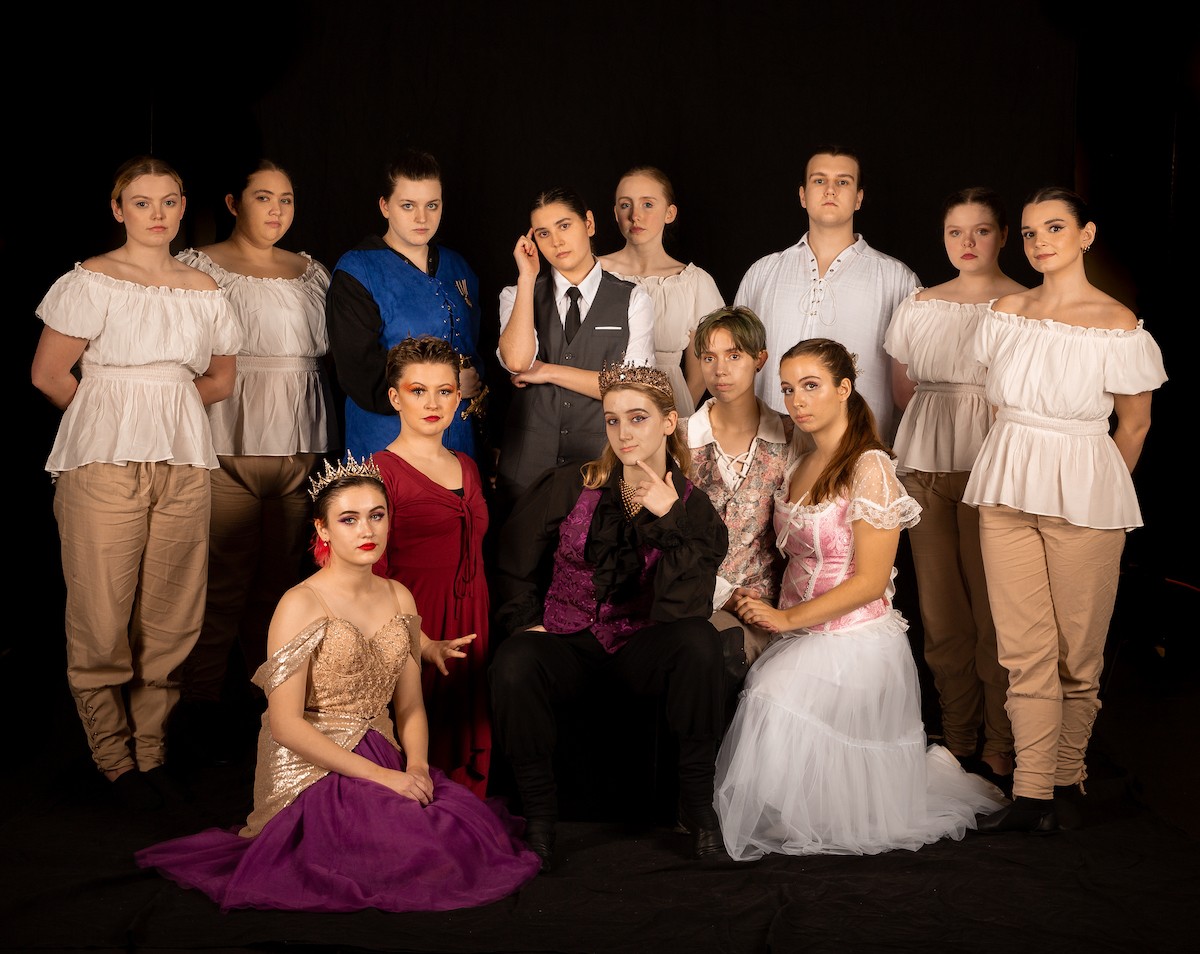We caught up with the brilliant and insightful Adrianna Eve a few weeks ago and have shared our conversation below.
Alright, Adrianna thanks for taking the time to share your stories and insights with us today. Can you open up about a risk you’ve taken – what it was like taking that risk, why you took the risk and how it turned out?
Far too often, it is difficult to find a creative space that is both welcoming and safe for marginalized dancers. This is because dance culture can be so limiting in its consideration of who can (and cannot) dance.
When I founded the Adrianna Eve Company in 2018, it was extremely important to me that I not only provided a positive, safe, and encouraging environment for LGBTQ+, POC, and differently abled dancers (along with anyone else who has felt excluded from dance culture because of their identity), but also ensured that those identities received creative representation within my showcases.
Since our first showcase in 2018, every show has casted characters of diverse identities and presented them in healthy and accurate depictions. Unfortunately, due to our location in the South, our shows are often a risk when taken to the general public. Though we are grateful there has not been significant backlash thus far, we have had guests refuse to return to the second act of our show due our diverse representation and storyline.
In addition to this, because we are very vocal about social justice issues (such as the Black Lives Matter movement, LBGTQ+ rights, women’s rights, Indigenous sovereignty, and unlearning ableism in the performing arts), we have had concerns from parents about dancers joining our company because of our open expression.
The unfortunate reality is that a safe space and accurate representation for marginalized dancers is needed here in the South more than ever. At the same time, it is a huge financial risk to be the one providing that. While we may run into some hiccups here and there, we nevertheless stand-by our desire to be that home for dancers who never thought they would find one.
Adrianna, love having you share your insights with us. Before we ask you more questions, maybe you can take a moment to introduce yourself to our readers who might have missed our earlier conversations?
Growing up in a dance family, movement was a part of everyday life. When I wasn’t dancing at my mom’s studio, I was dancing at home with my siblings. Since I can remember, choreographing has occupied every creative muscle I have.
As a young adult dancer, I found there to be a missing link in the dance world. I felt as though there were only two options after graduating high school: leave your dance life behind or attempt at a professional/academic dance career. What about those who still had so much left to give to dance, but did not want to pursue it as a career? Where do they go? In light of this, I founded the Adrianna Eve Company, a place for dancers 8-18+ with a flexible schedule and high quality curriculum that focused on the joy of dance as a performance art. What started as a passion project during my college years quickly became an established, pre-professional dance company.
Are there any books, videos, essays or other resources that have significantly impacted your management and entrepreneurial thinking and philosophy?
Having a Master’s degree in Ethics and Applied Philosophy, many books, essays, and resources have influenced many if not all of my shows. For example, my 2020 showcase titled “Ungeographic” was inspired by Katherine McKittrick’s book “Demonic Grounds” and aimed to challenge dominant narratives which govern what can and cannot be mapped. It is a common belief that maps are unbiased, objective, and universally understood. However, this is not the case. The notion of geography is more than maps of land and water created by white colonizers hundreds of years ago. Geography is also how people navigate the world around them. It is about how different bodies occupy different spaces in different ways. Most importantly, geography is about how people map a certain form of existence worth documenting.
Our upcoming showcase “The Speech of Aristophanes” is inspired by Plato’s Symposium and seeks to portray the origin story of humankind’s pursuit of love and attempts to answer age-old questions; what is love? why do we love? what is our purpose in love?

Is there something you think non-creatives will struggle to understand about your journey as a creative? Maybe you can provide some insight – you never know who might benefit from the enlightenment.
The most frequent advice/critiques I receive as a creative with a business is how to capitalize my art. This, and perhaps other creative individuals may agree, is always a difficult conversation because art seems to be inherently anti-capital. I would, have, and currently do create without financial compensation and often do not think twice about it. However, in order to survive in our current society (and continue my craft full-time), it is important, if not necessary, to make profit from my art. On the other hand, when commodifying my art, I often equate how “good” or “bad” it is based on how much money it did (or did not) make. In any case, I believe non-creatives may struggle to understand the complexities of the relationship between art and compensation. 
Contact Info:
- Website: www.adriannaeve.com
- Instagram: @adriannaevecompany
- Facebook: facebook.com/adriannaevecompany
- Youtube: https://www.youtube.com/@adriannaevecompany534/about
Image Credits
Sarah Whitehurst and Phil Roc Photography


